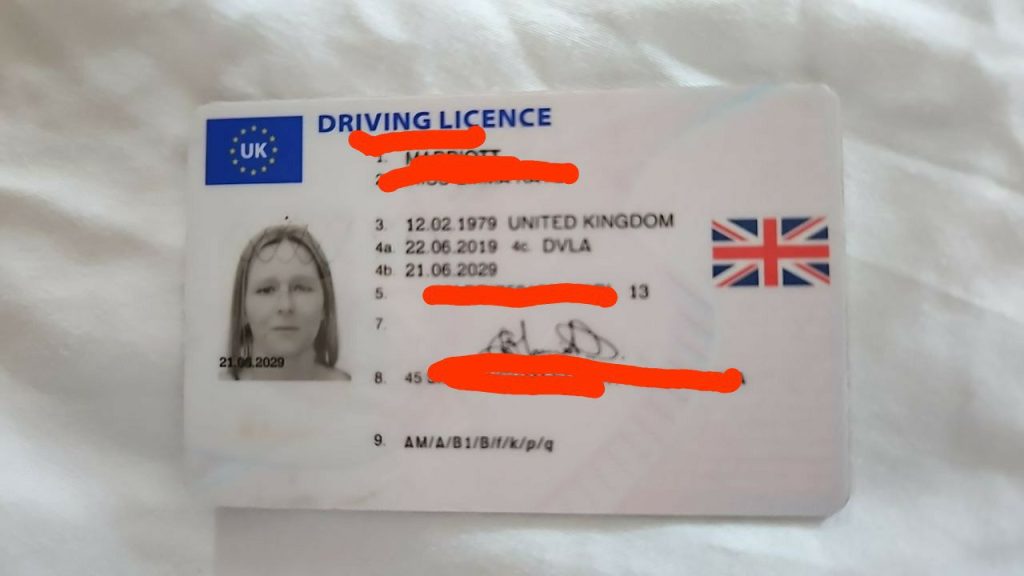Your Driving Future: How to Confidently Check Your DVLA Points
As a driver in the UK, your licence isn’t just a laminated card; it’s a testament to your driving history and responsibility. And central to that history are DVLA penalty points, also known as endorsements. Whether you’ve just received a speeding ticket, are renewing your insurance, or simply want to stay on top of your driving record, knowing how to check your DVLA points is an essential skill every licence holder should possess.
This comprehensive guide will walk you through everything you need to know about DVLA points, why checking them regularly is crucial, and exactly how you can do it with ease.
What are DVLA Penalty Points (Endorsements)?
DVLA penalty points are officially recorded endorsements on your driving licence. They are issued by courts or the police when you commit a driving offence, ranging from minor infractions like speeding to more serious offences such as driving without insurance or dangerous driving. Each offence carries a specific number of points, which then remain on your licence for a set period.
The primary purpose of penalty points is to deter unsafe driving and ensure that those who repeatedly break traffic laws face appropriate consequences, including potential disqualification from driving.
Why Checking Your DVLA Points is So Important
You might think, “I know if I’ve got points, don’t I?” While that’s often true for recent offences, it’s surprisingly easy to lose track, or even for errors to occur. Here’s why a regular DVLA points check is invaluable:
- Insurance Premiums: Your driving record is a major factor in how insurers calculate your premiums. More points typically mean higher costs. Knowing your current endorsements allows you to anticipate insurance quotes and accurately declare your history when seeking new policies.
- Driving Eligibility: Accumulating too many points can lead to disqualification. For new drivers, the threshold is very low. Regular checks help you monitor your total and avoid reaching a critical number.
- Employment: Many jobs, particularly those involving driving, require a clean licence. Employers may request to see your driving record, and knowing your points ensures you’re prepared.
- Accuracy: In rare cases, points might be applied incorrectly or stay on your record longer than they should. Checking allows you to spot and rectify any discrepancies.
- Peace of Mind: Simply knowing where you stand can be reassuring. It keeps you informed and empowers you to make better driving decisions.
How to Check Your DVLA Points Online: The Easiest Way
The quickest and most common method to check your DVLA points is through the official UK government website. It’s a free, secure, and straightforward process.
Here’s a step-by-step guide:
- Gather Your Information: Before you start, make sure you have the following to hand:
- Your UK driving licence number (the 16-character number on your photocard).
- Your National Insurance number.
- The postcode on your driving licence.
- Visit the Official Website: Go to the “View or share your driving licence information” section on GOV.UK. You can usually find this by searching for “DVLA check driving licence” or similar terms.
- Enter Your Details: You’ll be prompted to enter the three pieces of information you gathered in step 1.
- Generate a Code (If Needed): Once your identity is verified, you’ll be taken to a page that displays your driving licence information. From here, you can generate a “check code.” This code is valid for 21 days and allows you to share your information (e.g., with an employer or car hire company) or simply view it yourself.
- View Your Endorsements: The online service will display a summary of your driving record, including:
- Any penalty points (endorsements) you currently have on your licence and when they were issued.
- When the points are due to expire.
- Any disqualifications you currently have.
- The types of vehicles you’re licenced to drive.
It’s important to remember that this online service provides the most up-to-date information directly from the DVLA.
Common Endorsement Codes and Points
When you check your licence, you’ll see specific codes. Here’s a glance at some common ones and what they mean:
| Code | Offence Type | Points Range | Retention Period |
|---|---|---|---|
| SP10 | Speeding (motorway) | 3-6 | 4 years from offence date |
| SP30 | Speeding (public road) | 3-6 | 4 years from offence date |
| CD10 | Driving without due care and attention | 3-9 | 4 years from offence date |
| DR10 | Driving while unfit through drink | 3-11 | 11 years from conviction date |
| DR20 | Driving while exceeding alcohol limit | 3-11 | 11 years from conviction date |
| IN10 | Using a vehicle uninsured against third party risks | 6-8 | 4 years from offence date |
| TS10 | Failing to comply with traffic signals | 3 | 4 years from offence date |
| LC20 | Driving otherwise than in accordance with a licence | 3-6 | 4 years from offence date |
Note: This table provides common examples. Many other codes exist, and the specific points issued depend on the severity of the offence and court discretion.
Other Ways to Check Your DVLA Points
While the online service is the most convenient, there are other methods available:
- By Post (Form V888): You can request your driving licence information by post using Form V888, “Request for information held on your driving record.” This form is typically used for more detailed inquiries or if you cannot access the online service. You’ll need to send it to the DVLA with a cheque or postal order for the fee (if applicable). This method takes longer, usually a few weeks.
- By Phone: For specific queries that aren’t easily answered online, you can contact the DVLA’s driver and vehicles enquiry line. However, they generally direct you to the online service for simple checks of points and entitlements.
What to Do After Checking Your Points
Once you’ve viewed your driving record, take a moment to understand what you’re seeing:
- Review for Accuracy: Check that all endorsements listed are correct and that the points and expiry dates align with your understanding. If you believe there’s an error, contact the DVLA immediately.
- Note Expiry Dates: Be aware of when your points are due to expire. Points are removed automatically after their retention period, but the offence itself remains on your record for longer (e.g., 11 years for serious drink-driving offences, even if the points are gone after 4 years).
- Consider Your Driving Habits: If your point total is creeping up, it’s a good time to reflect on your driving behaviour and consider how you can minimise future offences.
The Impact of Points on Your Insurance
It’s no secret that insurance companies view penalty points unfavourably. Here’s why and what you can do:
- Increased Premiums: Insurers see drivers with points as a higher risk. This often translates directly into higher insurance premiums. The number, type, and recency of your points all play a role.
- Policy Refusal: In extreme cases, particularly with serious offences or a high number of points, some insurers may refuse to offer you a policy.
- Finding Insurance with Points:
- Be Honest: Always declare your points accurately when getting insurance quotes. Failure to do so can invalidate your policy.
- Shop Around: Don’t just stick with your current insurer. Use comparison websites and direct insurers. Some specialists cater to drivers with points.
- Consider a Higher Excess: A higher voluntary excess might reduce your premium, but be prepared to pay more if you make a claim.
- Improve Security: Investing in car security features (alarms, immobilisers) can sometimes help.
Understanding Disqualification Thresholds
The most severe consequence of accumulating points is disqualification. The rules vary depending on your driving experience:
| Driver Type | Points Threshold | Consequence |
|---|---|---|
| New Driver (less than 2 years experience) | 6 points | Your licence will be revoked. You’ll have to apply for a new provisional licence and retake both your theory and practical driving tests. |
| Experienced Driver | 12 points | You will face a minimum disqualification of 6 months. This is typically applied over a 3-year period. Repeat disqualifications can lead to longer bans. |
Note: For repeat offenders, a second disqualification within 3 years for 12 or more points can lead to a 1-year ban, and a third can result in a 2-year ban.
Frequently Asked Questions (FAQ)
Q1: How often should I check my DVLA points? A: It’s a good practice to check your points at least once a year, especially before your insurance renewal. You should also check shortly after receiving a fixed penalty or court conviction to ensure the points have been correctly applied.
Q2: Can my employer check my DVLA points? A: Yes, if driving is part of your job, your employer may request to check your driving licence information, including points. They usually do this by asking you to generate a “check code” from the DVLA website, which they can then use to view your record.
Q3: Do points on a provisional licence count? A: Yes, any penalty points received on a provisional licence will be carried over to your full driving licence once you pass your test. If you accumulate 6 or more points on your provisional licence, your full new licence will be revoked as soon as you pass.
Q4: What if I don’t agree with the points on my licence? A: If you believe there’s an error on your driving record, you should contact the DVLA directly to query it. You may need to provide evidence to support your claim, such as proof of payment for a fine or court documents.
Q5: Do DVLA points transfer if I move country? A: Generally, UK penalty points do not directly transfer to a licence issued by another country. However, if you have a serious driving offence on your record, it may still be considered by authorities or insurers in a new country. Likewise, points from offences committed abroad may be applied to your UK licence in some circumstances.
Stay Informed, Drive Safely
Checking your DVLA points is a simple, yet powerful, way to stay in control of your driving future. By regularly monitoring your record, you can avoid unwelcome surprises, make informed decisions about your insurance, and ultimately, remain a responsible and legally compliant driver on UK roads. Make it a routine, and drive with confidence.

